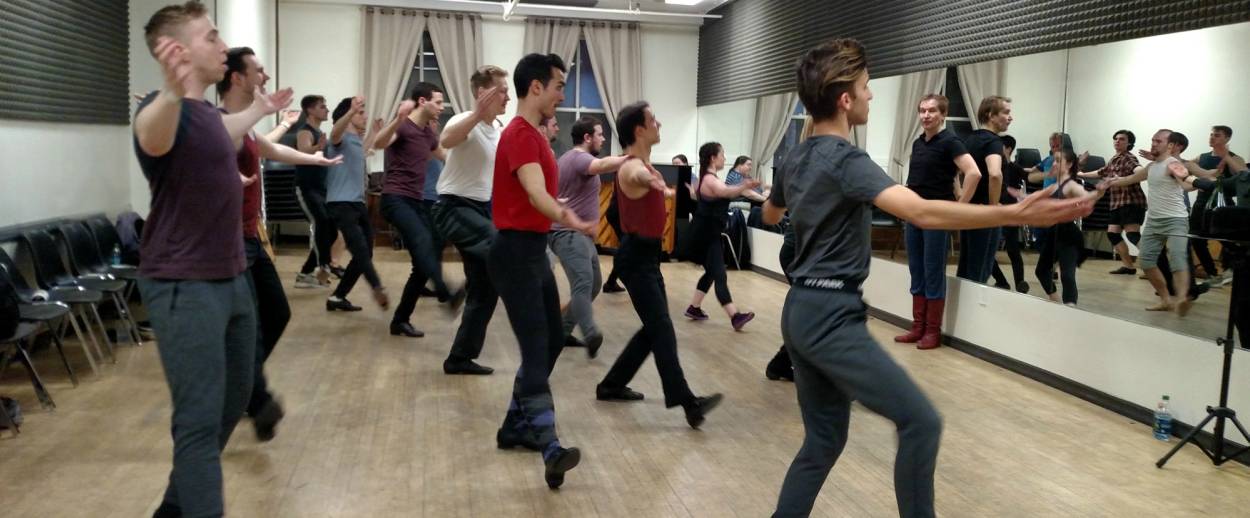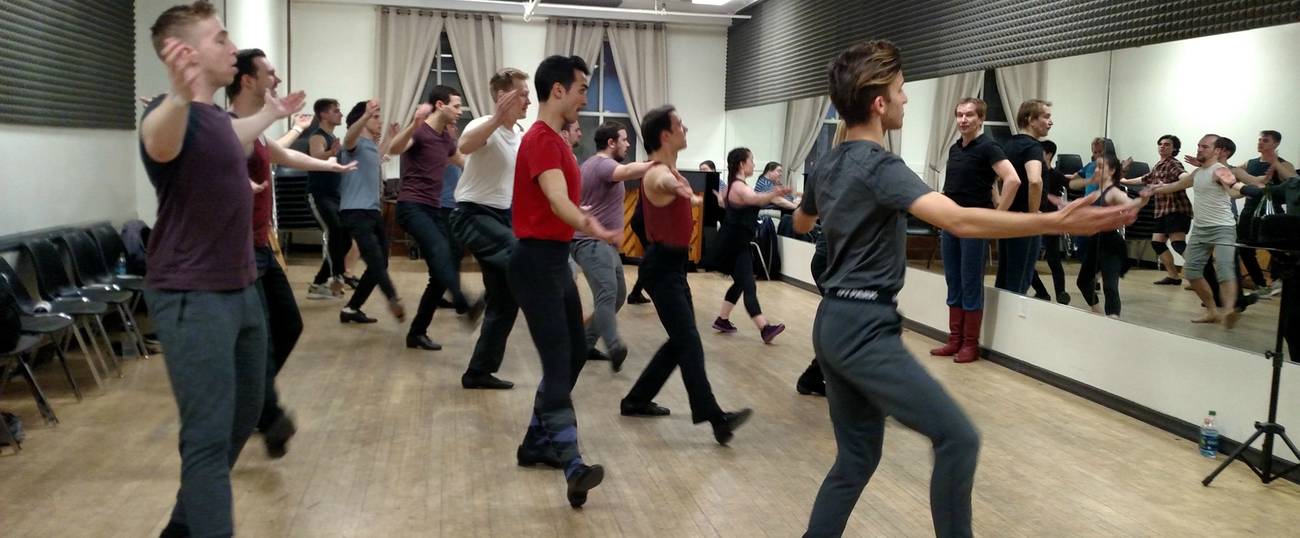Behind the Scenes of the New Yiddish ‘Fiddler’
Can you sing? Dance? Speak the mamaloshen? Welcome to Anatevka.




At a rehearsal studio in midtown, a team of creatives and managers prepared for the open call. There were few indications that the auditions were for roles in Fiddler on the Roof, but off to the side, like a Chekhov’s gun, sat a glass bottle next to a black, brimmed hat (to be used, presumably, in Chekhov’s callback). But for now, the mission was for male dancers to learn the choreography for “L’Chaim,” and, to show off ballet skills, “Matchmaker, Matchmaker.”
Nearly twenty young men, most of whom were not Jewish, filed into the room in rehearsal clothing. Choreographer Staś Kmieć quickly ran through the steps, and within minutes, the dancers were trying it without him in small groups.
Energy in the room was high; not only is this Fiddler set to be a major off-Broadway show, but its director is theater legend Joel Grey. Plus, there’s a twist— the production is part of the National Yiddish Theater-Folksbiene, and will be performed entirely in Yiddish.
The group of would-be cast members was far from everyone; another throng would take their turn soon, and there were already callbacks scheduled for select actors from prior auditions. The show doesn’t open till the summer, but interest from patrons and performers alike has been overwhelming.
Perhaps it’s the recognizable brand; there’s always a Fiddler on the Roof playing somewhere. And of course, the announcement of Grey as the production’s director built up buzz. And while the Folksbiene has been active for more than a century, it’s been especially prominent lately; its recent musicals, The Golden Bride and The Golden Land (a lot of gold!) both had successful runs. Whatever the cause, the excitement was palpable.
“We never expected such a response,” expressed Zalmen Mlotek, the artistic director of the NYTF.
The dancers had an hour break, and looked ahead to their musical and acting auditions to come. Jeff Tierney, one of the hopefuls, isn’t Jewish, but has been in productions of Fiddler twice, and has an abiding love for the show.
“It’s a little unfortunate that it’s still relevant,” he said. From women’s rights to education, to an authority discriminating against a religious group, it felt sadly familiar to him. “That’s worse than what’s going on in America, but the gap is slowly, but surely…”
Tierney is nervous about tackling the show’s Yiddish, but has already committed some of it to memory, and his accent sounds good. (The show’s team is looking for “quadruple threats,” with the language ability rounding out the usual acting/singing/dancing combo.)
Of course, being Jewish doesn’t necessarily give you an edge. Also at the call was performer Spencer Perdeck. Perdeck grew up with the occasional Yiddish phrase at home, but like most American Jews, he doesn’t speak the language. He has auditioned for NYTF in the past, excited for the chance to perform, but also drawn to its mission: “This would be a good chance to see what Yiddish is about,” he said. (Unlike Tierney, and many, many Jewish children, Perdeck has somehow never been in a production of Fiddler in any language.)
Despite the show’s ubiquity, members of the production team are not relying on the iconic staging and design, or Yiddish as a gimmick, to tell the story of the Jews of Anatevka.
“We’re letting the story lie bare on stage,” said Kmieć, who suggested that those expecting a folksy, charming revival may want to look elsewhere. While the staging will pay an homage to the iconic Jerome Robbins version (whose estate signed off on this production), Kmieć referenced Chekhov and Brecht as inspirations for this production.
As to who will have that bottle on their head remains to be seen, but the matter will be settled soon; rehearsals begin early June, performances of the show (with both English and Russian subtitles) run July 4th through August 26 at the Museum of Jewish Heritage in Manhattan.
Gabriela Geselowitz is a writer and the former editor of Jewcy.com.